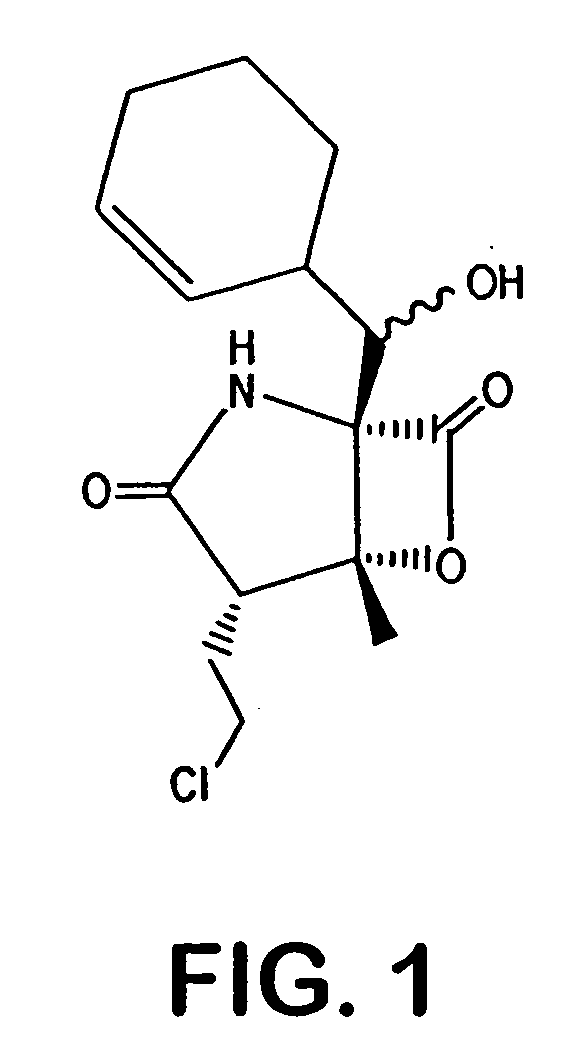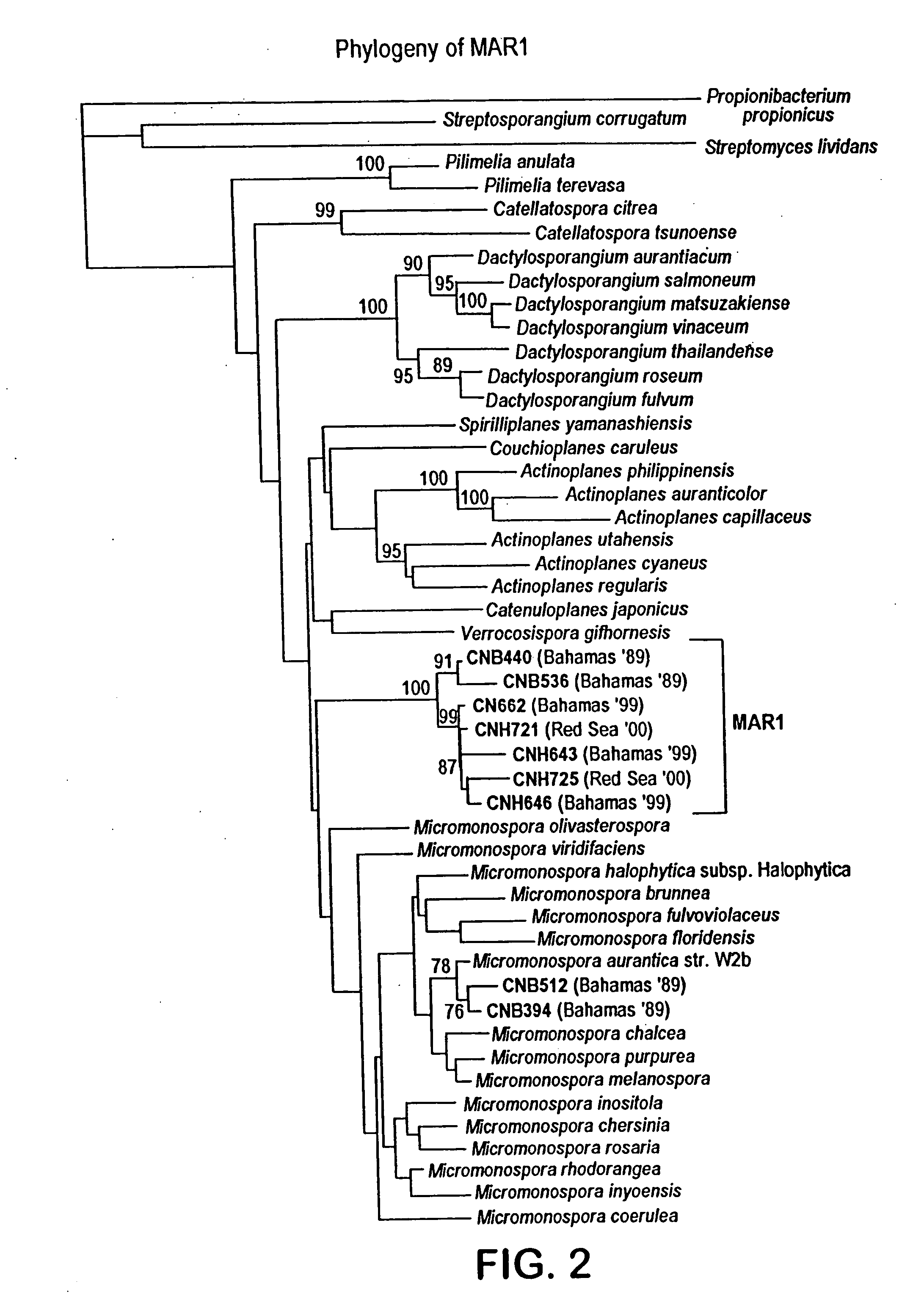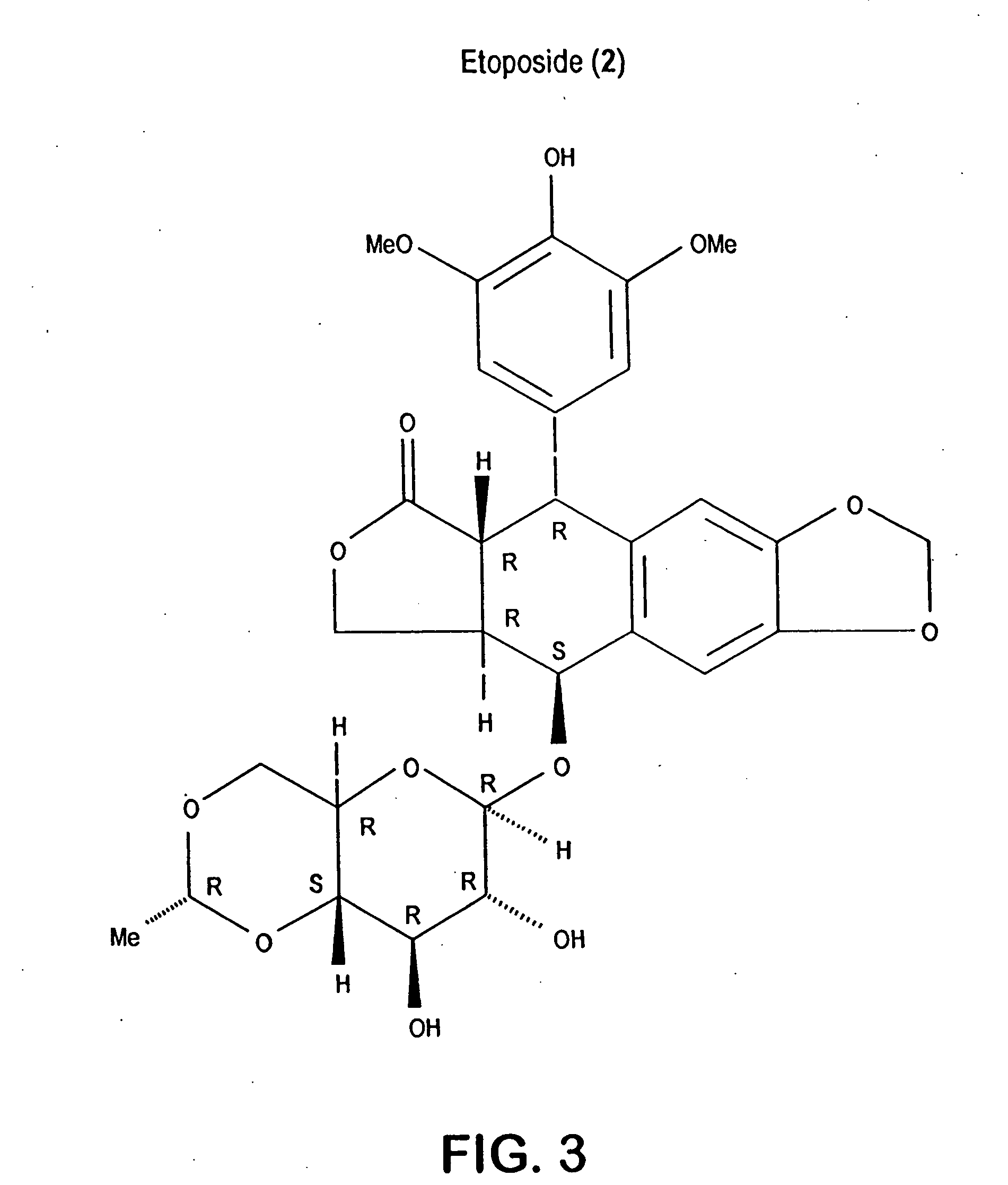Salinosporamides and methods for use thereof
a technology of salinosporamide and sulfonamide, which is applied in the field of anti-neoplastic agents, can solve the problems of significant and potentially life-threatening toxicities, interfere with the growth of tumor cells, and death in humans, and achieves the effects of effective inhibitors of hyperproliferative mammalian cells, low molecular weight, and good anti-cancer
- Summary
- Abstract
- Description
- Claims
- Application Information
AI Technical Summary
Benefits of technology
Problems solved by technology
Method used
Image
Examples
example 1
Isolation and Characterization of “Salinsospora” Species, Culture Nos. CNB392 and CNB476
[0116] CNB392 and CNB476 possess signature nucleotides within their 16S rDNA which separate these strains phylogenetically from all other members of the family Micromonosporaceae (see FIG. 15) These signature nucleotides have been determined to be a definitive marker for members of this group which also have a physiological growth requirement of sodium. Signature nucleotides were aligned to E. coli positions 27-1492 using all existing members of the Micromonosporaceae in the Ribosomal Database Project as of 1-31-01. For the “Salinospora” clade, 45 partially sequenced morphotypes displayed all the signature nucleotides from positions 207-468. The seven “Salinospora” isolates sequenced almost in their entirety (see FIG. 2) displayed all of the signatures in FIG. 15.
[0117] The strains CNB392 and CNB476 form bright orange to black colonies on agar and lacks aerial mycelia. Dark brown and bright ora...
example 2
Bioactivity Assays
[0122] Salinosporamide A shows strong activity against human colon cancer cells with an IC50 of 0.011 μg / mL (see FIG. 4). The screening on antibacterial or antifungal activity shows no significant activity, see Table 1.
TABLE 1IC50 ofSalinosporamide A,Assay(μg / mL)HCT-1160.011Candida albicans250Candida albicans(amphoterocin B resistant)NSA*Staphylococcus aureus (methecillin resistant)NSA*Enterococcm faecium (vanomycin resistant)NSA*
*NSA = no significant activity
example 3
Determination of Absolute Stereochemistry
[0123] Crystallization of a compound of structure I from ethyl acetate / iso-octane resulted in single, cubic crystals, which diffracted as a monoclinic system P2(1). The unusual high unit-cell volume of 3009 Å hosted four independent molecules in which different conformational positions were observed for the flexible chloroethyl substituent. The assignment of the absolute structure from the diffraction anisotropy of the chlorine substituent resolved the absolute stereochemistry of salinosporamide A as 2R, 3S, 4R, 5S, 6S (FIGS. 16 and 17) with a Flack parameter of 0.01 and an esd of 0.03.
PUM
 Login to View More
Login to View More Abstract
Description
Claims
Application Information
 Login to View More
Login to View More - R&D
- Intellectual Property
- Life Sciences
- Materials
- Tech Scout
- Unparalleled Data Quality
- Higher Quality Content
- 60% Fewer Hallucinations
Browse by: Latest US Patents, China's latest patents, Technical Efficacy Thesaurus, Application Domain, Technology Topic, Popular Technical Reports.
© 2025 PatSnap. All rights reserved.Legal|Privacy policy|Modern Slavery Act Transparency Statement|Sitemap|About US| Contact US: help@patsnap.com



